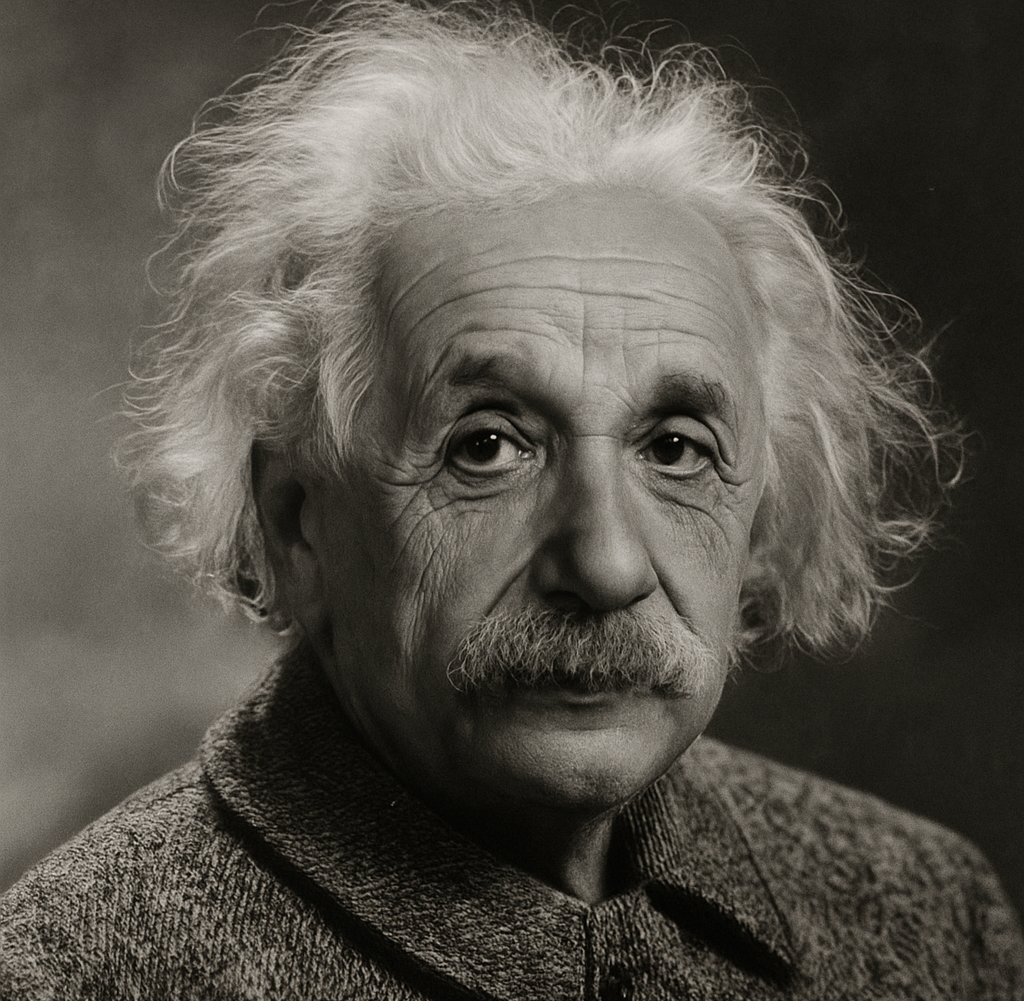Table of Contents
Chapter 1: A Curious Mind is Born (1879 – 1895)
On March 14, 1879, in the city of Ulm, Germany, a boy named Albert Einstein was born into a middle-class Jewish family. From an early age, Albert wasn’t like other children. He spoke slowly, often pausing before talking. His teachers thought he was “mentally slow” — little did they know he was just thinking deeper than most.
As a child, Einstein was fascinated by compasses and music. When he was five, he saw a magnetic compass, and it sparked a lifelong curiosity about invisible forces. He also loved playing the violin, which remained a passion throughout his life.
Though he struggled in a rigid school system, Einstein taught himself geometry and calculus before the age of 15. His independent thinking would soon shake the foundations of science.
Chapter 2: Education and Early Struggles (1895 – 1905)
Einstein moved to Switzerland and attended the Swiss Federal Polytechnic in Zurich. While brilliant, he clashed with professors and preferred studying on his own. After graduating in 1900, Einstein couldn’t find a teaching job and worked as a patent clerk in Bern.
While examining other people’s inventions during the day, he pursued physics at night. This modest clerk was quietly working on ideas that would revolutionize science.
In 1905, Einstein published four groundbreaking papers. This year became known as his “Annus Mirabilis” (Miracle Year):
- Photoelectric effect – Explained how light can eject electrons from a material, proving light acts as particles (quanta).
→ Won him the Nobel Prize in Physics (1921). - Brownian motion – Offered proof that atoms and molecules exist.
- Special Theory of Relativity – Introduced the concept that time and space are relative, depending on the observer.
- E=mc² – Revealed that mass and energy are interchangeable, one of the most famous equations in history.
Chapter 3: Fame, Relativity, and a New Reality (1905 – 1933)
Einstein’s theory of general relativity (1915) came next. It described gravity not as a force, but as a curvature of space-time caused by mass. This mind-bending theory predicted strange phenomena like black holes, gravitational waves, and time dilation.
In 1919, astronomers confirmed his theory during a solar eclipse by observing the bending of starlight around the sun — just as Einstein predicted. Overnight, he became an international superstar.
He lectured around the world, met kings and presidents, and appeared in newspapers. Yet he remained humble, often joking, “I have no special talent, I am only passionately curious.”
Chapter 4: Escape from Darkness (1933 – 1945)
As Adolf Hitler rose to power in Germany, Einstein — a Jewish scientist and outspoken pacifist — became a target. In 1933, he fled to the United States and joined Princeton University in New Jersey.
Though a pacifist, Einstein feared Nazi Germany could develop a nuclear weapon. He signed a letter to President Franklin D. Roosevelt, urging the U.S. to develop atomic weapons — a decision he later deeply regretted.
Einstein did not work on the Manhattan Project, but his famous equation E=mc² underpinned the possibility of nuclear energy.
Chapter 5: A Humanitarian and Thinker (1945 – 1955)
After World War II, Einstein became a champion for peace, civil rights, and world government. He spoke against racism in America, supported Zionism (but declined the offer to become President of Israel), and warned against nuclear proliferation.
He spent his final years trying to unify the laws of physics — a “Theory of Everything”, but the puzzle remained unsolved.
Chapter 6: Legacy of a Genius
On April 18, 1955, Albert Einstein died in Princeton at the age of 76. His brain was preserved for research, his ashes scattered in secret.
Einstein left more than scientific theories. He left a way of thinking — one that values curiosity, creativity, and courage.
His words continue to inspire:
❝Imagination is more important than knowledge.❞
❝Life is like riding a bicycle. To keep your balance, you must keep moving.❞
❝Try not to become a man of success, but rather try to become a man of value.❞
💡 Why Einstein Still Matters
- Physics: His work laid the foundation for GPS, nuclear power, quantum mechanics, and modern cosmology.
- Inspiration: He proved that one curious mind, even in a small patent office, can change the world.
- Symbol: Einstein became the symbol of genius — messy hair, twinkling eyes, and a childlike wonder for the universe.

